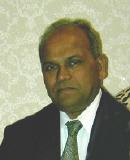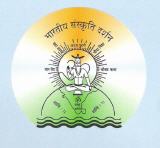Depression & Ayurveda
01.12.2008 | The word Ayurved is derived from 2 words – Ayu & Ved. Ayu means life & Ved means knowledge. Ayu (Life) is a constant & continuous conjunction of Body, Senses, Soul & Mind. Thus to achieve long & healthy life, wellbeing of all these 4 factors is essential.
|
Acharya Sushruta, one of the great experts & Sages of Ayurved, has described healthy person i.e. Swastha Purusha in an unique definition. Aperson whose 3 Doshas (Vata, Pitta, Kapha), 7 Dhatus (Rasa, Rakta, Mansa, Meda, Asthi, Majja, Shukra) & 3 Mala (Mutra, Purisha, Sweda) are in normal state; whose Agni (Digestive power) is functional well: whose Soul, Senses & Mind are cheerful is called as Swastha (Healthy person). This definition indicates that healthy state of a human being does not depend only on physical health but also on a mental health. Ayurved has given equal importance on physique & mind. Mind is said to be Ubhayendriya ie Gnyanendriya (Sense organ) & Karmendriya (Motor organ) both. Mind is an essential element in the processes of grasping knowledge & in the process of doing action. Thus it is called as Ubhayendriya. It possess 1 Guna (Good quality) i.e. Satva & 2 Dosha (Harmful qualities) i.e. Raja & Tama. Raja & Tama in their imbalanced state become a cause of mental disorders. Depression is one of the commonest mental disorders which is termed as Dukhha (Sadness) in Ayurved. Acharya Charaka has clearly mentioned the cause of Depression – Dukhha as “Ishtasya Alabhat” ie. Not obtaining the things which one demands & “Labhat cha Anishtasya) i.e. Obtaining the things which one hates. Ayurved has precisely mentioned the treatment of Manasa Roga (Mental disorders) in the topic of Achara Rasayana / Sadvrutta. Achara Rasayana means following Ethical code of conduct which is beneficial for Rejuvenation of Mind & Body. It includes various rules & regulations about physical, mental & verbal actions. Physical rules include regulations essential to maintain physical health. E.g. One has to get up early morning which is the best time for meditation & study; one has to follow morning ablutions like brushing, passing urine & stool, bath; one has to perform family duties, professional duties & social duties honestly; one has to follow the ethical rules about sexual contact. Giving respect to elderly persons, masters, teachers; maintaining healthy interpersonal relationship in all relations; avoiding greed are the examples of rules about mental actions. Rules about verbal action include rules about verbal communication in society. E.g. To be a soft spoken, to speak true, to avoid criticism. Ayurved has described 10 sins which have to be avoided in whole life. This article is written by |
||
|
|
||
|
Dr.S.P.Sardeshmukh is the first Ph.D. Ayurved in Pune University. He is a well-known Ayurvedic Consultant in Pune, Mumbai and abroad. He is Trustee and Chairman of Bharatiya Sanskriti Darshan Trust, Principal of Ayurvedic College, Director of Ayurved Hospital and Research Centre and Director of Atharva Ayurved Pharmaceuticals. He is regularly invited by various organizations from different countries for lectures on Ayurved. Also he has patients all over India as well as in Australia, Germany, Japan, U.S.A., Switzerland, Holand. He is working in teaching field since last 30 years. He has given guidance to many students for M.D. and Ph.D. in Ayurved. He is Member of Board of Studies, Faculty and Academic Counsil in Pune University, Mumbai University. He is ex-Dean of faculty of Ayurved in Mumbai University. He is also Senate member of Maharashtra University of Health Science, Nashik. He has received "Sarvashri Award" 1999 and "Life Time Achievement" Award in the year 2001. |
||
|
|
||
|
Bharatiya Sanskriti Darshan Trust |
||
|
|
||
|
The Scientific Director of the Ayurveda Academy of Yoga in Daily Life is Univ.-Prof. Dr. S.P. Sardeshmukh. |
||






.jpg)


.png)

.jpg)

